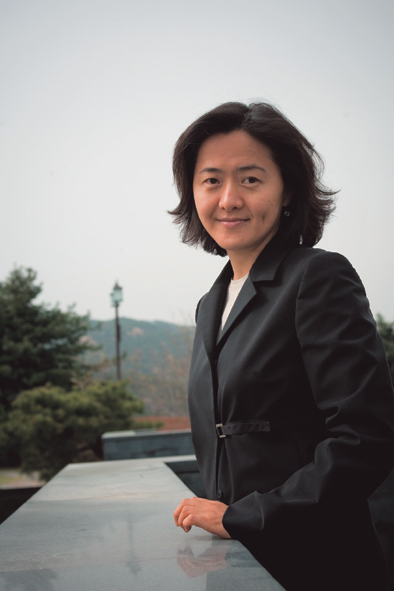OH Jung-wan has been one of the most important players in the development of the Korean film industry in the 1990s that led to the Korean New Wave. Born in 1964, she was working at an advertisement agency in the late 80’s when her school friend SHIN Cheol offered her to join his newly-founded film company ShinCine. Starting with the promotion of <Happiness Does Not Come In Grades> in 1988, she soon moved to the development and production side of the business. Most no...
More
OH Jung-wan has been one of the most important players in the development of the Korean film industry in the 1990s that led to the Korean New Wave. Born in 1964, she was working at an advertisement agency in the late 80’s when her school friend SHIN Cheol offered her to join his newly-founded film company ShinCine. Starting with the promotion of <Happiness Does Not Come In Grades> in 1988, she soon moved to the development and production side of the business. Most notably, she produced <The Marriage Life> (1992), a milestone in the Korean film history as it was the first to be financed (partially) by an outside private corporation, in this case Samsung. The film would top the national box office that year and foster the involvement of conglomerates in the film industry. She also contributed to the production of <The Gingko Bed> (1996) and <An Affair> (1998). In 1999, she established her own production company Bom Film Productions and introduced KIM Jee-woon to the rest of the world by producing some of his most acclaimed works, namely <The Foul King>, <A Tale Of Two Sisters> and <A Bittersweet Life>. She has been one of the first producers to seek co-productions with Japan and China as she took part in the international anthology films <Three> and <Three... Extremes>. She also worked with IM Sang-soo (<Tears>), HONG Sang-soo (<Woman On The Beach> and <Night And Day>), and E J-yong (<Untold Scandal>). Her collaboration with LEE Yoon-ki has been particularly fruitful as she won Best Planning in 2006 at the Grand Bell Awards for <You Are My Sunshine> and received two years later a FIPRESCI award from the International Federation of Film Critics, Korean branch, for <My Dear Enemy>. Her contribution to Korean films has been such that the Women in Film Festival named her Best Woman in Film during its first edition in 2000.
Less







